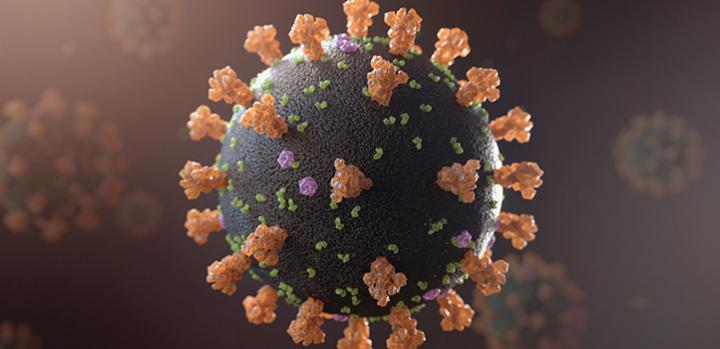A team of scientists compared the genomes of 24 Betacoronaviruses, including four SARS-CoV-2 viruses, which causes COVID-19. Their genomic comparisons followed by structural analyses found that a small protein that extends across the viral membrane, called envelope protein E, is almost identical in SARS-CoV-2 and the SARS virus (called SARS-CoV-1). A molecular component of this protein in the SARS virus helps trigger the release of inflammation-causing substances in its host. This inflammatory reaction causes fluids to accumulate in the lungs resulting in breathing difficulties, a condition called acute respiratory distress syndrome. Scientists studying the SARS virus have found that this reaction can be inhibited in mice by FDA-approved drugs.

Graphical rendering of a SARS-CoV-2 virus showing the membrane protein (green) and envelope protein (purple) and the characteristic spike protein (orange). Image: KAUST; Xavier Pita
"SARS-CoV-2 appears to have recently evolved from other related Betacoronaviruses, such as the ones causing SARS and Middle East respiratory syndrome (MERS)," explains Intikhab Alam, first author of the study. "We wanted to understand the genetic make up of SARS-CoV-2. Seeing what has changed might help find ways to detect the virus and understand its rapid spread. Seeing what remains conserved between these viruses might help predict if therapeutic approaches developed for other Betacoronaviruses could work on SARS-CoV-2."
It follows that drugs that inhibit the envelope protein E of previous SARS viruses should also block the protein in COVID-19. Though no drug will stop the virus from spreading, just like the cold virus the goal is to ameliorate or even prevent acute respiratory distress syndrome and help save lives.





Comments